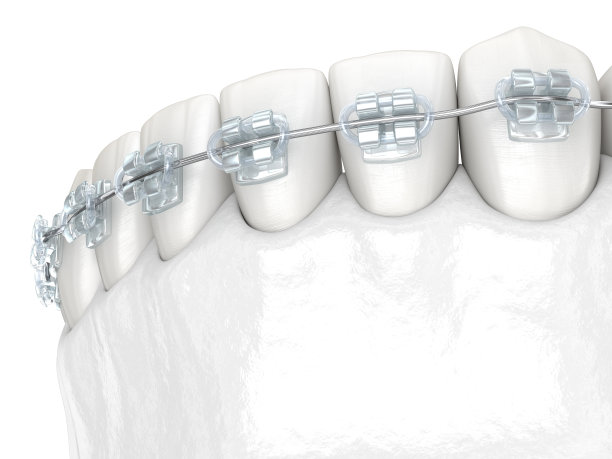Summary: Dental implant treatments provide numerous benefits for those facing tooth loss, promoting both aesthetic and functional improvements. This comprehensive guide delves into the advantages of dental implants, factors contributing to their success, common misconceptions, and the importance of aftercare. By exploring these aspects, readers will gain a better understanding of how dental implants may enhance their quality of life and what considerations they must take into account for effective rehabilitation. With this knowledge, patients can make informed decisions about their dental health.
1. Advantages of Dental Implant Treatments

Dental implants offer a variety of advantages that make them a popular choice for tooth replacement. Firstly, they closely resemble natural teeth in appearance and function. Implants are designed to mimic the structure of real teeth, providing a seamless integration into the mouth that improves both aesthetics and confidence. Patients often report feeling more comfortable and less self-conscious with implants compared to dentures or bridges.
Secondly, dental implants significantly enhance oral function. Unlike removable dentures, which can slip or shift, implants are securely anchored to the jawbone. This stability allows individuals to eat a wider range of foods without discomfort or fear of their prosthetic teeth moving. Additionally, chewing efficiency is restored, leading to a better overall dining experience.
Lastly, dental implants contribute to long-term oral health. They help prevent bone loss in the jaw, a common issue following tooth loss. The titanium post of the implant integrates with the bone, stimulating it much like a natural tooth root would. This not only maintains the structure of the jaw but also preserves facial contours, preventing the sunken look often associated with missing teeth.
2. Factors Influencing Successful Rehabilitation
Successful rehabilitation with dental implants hinges upon several key factors. One of the most critical is the patients oral health. A thorough examination by a dental professional is necessary to assess the condition of the gums and bone. Patients with periodontal disease or insufficient bone density may require treatments like bone grafting before they can receive implants.
Another essential factor is the skill and experience of the dental surgeon. The success rate of implants is significantly influenced by the providers expertise in evaluating and executing the implant procedure. Therefore, it’s crucial for patients to choose a qualified dentist or oral surgeon with a solid track record in implantology.
Finally, patient compliance plays a pivotal role in the success of dental implants. Following pre-operative and post-operative instructions, attending follow-up appointments, and maintaining excellent oral hygiene are vital steps that significantly impact healing and the longevity of the implant. The more committed the patient is to their oral health, the better the outcome will likely be.
3. Common Misconceptions About Implants
Despite their advantages, many misconceptions surrounding dental implants still persist. One common myth is that the implant procedure is excessively painful. However, with modern anesthesia and sedation techniques, most patients report experiencing little to no discomfort during the procedure. Post-operative pain can usually be managed with prescribed medication.
Another misconception is the belief that implants require special care that is difficult to maintain. In reality, dental implants can be cared for just like natural teeth. Regular brushing, flossing, and dental check-ups are sufficient to keep implants healthy. This simplicity makes dental implants a convenient option for many individuals.
4. Importance of Aftercare and Maintenance
The aftercare and maintenance of dental implants is crucial for their long-term success. Regular dental visits are key to monitoring the health of the implants and surrounding tissue. Professional cleanings and check-ups allow for early detection of any potential issues, ensuring that the implants remain in good condition.
Patients should also maintain a diligent oral hygiene routine. Brushing twice daily, flossing, and using mouthwash helps prevent plaque buildup, which can lead to gum disease and jeopardize the stability of the implant. Additionally, some dentists recommend the use of an interdental brush or water flosser to reach difficult areas effectively.
Finally, lifestyle choices significantly impact implant longevity. Avoiding smoking and limiting alcohol intake can improve healing and reduce complications. A balanced diet rich in nutrients also supports oral health and overall well-being, emphasizing the importance of holistic care after undergoing dental implant procedures.
Summary:
In conclusion, dental implants represent a transformative solution for tooth loss, offering aesthetic, functional, and health benefits. Understanding the factors contributing to their success, addressing common misconceptions, and prioritizing aftercare are essential steps for anyone considering this treatment. By making informed decisions and adhering to care guidelines, patients can significantly enhance their dental health and overall quality of life.
This article is compiled by Vickong Dental and the content is for reference only
Vickong Dental
Vickong Dental is a large medical group established in Hong Kong in 2008 by professors from well-known medical universities in Guangdong and Hong Kong, as well as medical doctors from key national '985' universities (including Master's supervisors and senior professors). The chain of branches brings together expert dentists with PhDs and Master's degrees from Hong Kong and Mainland China, committed to providing high-quality dental treatment.
"Vickong Dental Practices the University Motto of 'Healing and Serving Society,' with a Stable Operation for Sixteen Years. It Has Been honored with Hong Kong Enterprise Leaders's Choice,' and is a Global Trusted Implant Center for the Nobel Implant System. Recommended by Hong Kong Metro Broadcast and Guangdong Television, it Serves Customers from Over Thirty Countries and Regions, Gaining the Trust and Favor of Citizens from the Guangdong-Hong Kong-Macau Greater Bay Area and Surrounding Cities.

Thousands of customers' unanimous praise
The most recognized and highly recommended dental service by customers in the Guangdong-Hong Kong-Macau Greater Bay Area
We Ensure You Receive Detailed Care and Attention Here
Hong Kong standards, Shenzhen prices, Your Trusted English-speaking dentists

Vickong Dental Medical-Grade Instrument Disinfection Process
Vickong Dental Medical-Grade Instrument Disinfection Process

Vickong Dental Chain: A Warm and Comfortable Environment for Treatment






Appointment Hours

Q&A
Why choose Vickong Dental?
Vickong Dental practices the university motto 「Medicine to Benefit Society」, with each branch bringing together highly qualified dentists with doctoral and master’s degrees from Hong Kong and the Mainland, and has maintained seventeen years of steady operation。Recipient of 「2024 Hong Kong Enterprise Leaders Brand」, 「2025 Hong Kong Enterprise Leaders Brand」, a Nobel Biocare Global Trusted Implant Center, and a brand recommended by Metro Radio Hong Kong and Guangdong TV。
To date, we have served customers from more than thirty countries and regions,earning exceptionally high word-of-mouth recognition and trusted recommendations from residents across the Guangdong-Hong Kong-Macao Greater Bay Area and surrounding cities
We have eight major branches in Zhuhai、Shenzhen,and a consultation and service assurance center in Hong Kong,so you can book a free consultation at any time for any questions,which is very reassuring.
If I do not accept the quotation after the CT scan, will I be charged??
No! As long as the actual treatment has not started, you will not be charged any fees.
Will there be any additional charges during the treatment process?
No, there won’t be any additional charges. Before treatment begins, we will clearly explain the treatment plan and its corresponding fees. Only after the patient agrees and signs the consent form will we proceed with the dental service.
Can I pay in Hong Kong dollars?
Yes. Vickong Dental accepts payment in Hong Kong dollars. The amount will be converted based on the exchange rate of the day, and the applicable rate will be clearly communicated to you in advance.
Can I reschedule my appointment at any time?
Yes. Please contact us via **WeChat** or **WhatsApp** as early as possible, providing your original appointment time and details, along with your preferred new date and time slot for rescheduling.













